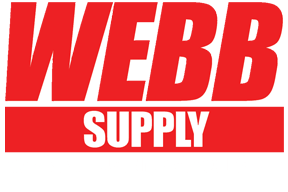
The HVAC industry has been changing over the past few years. In early 2022 the Department Of Energy (D.O.E) announced the efficiency and refrigerant changes rolling out in 2023 and 2025. The Inflation Reduction Act (I.R.A) is the latest facelift to the industry and it has some significant impacts on how distributors and installers think.
What is the Inflation Reduction Act?
The inflation reduction act was passed into law on August 16, 2022. The law was introduced as a bill in 2020 under the name of the “Build Back Better Act” which was focused on deficit reduction, lowering prescription drug costs, and promoting clean energy. When it passed in August of 2022, the law became the largest piece of federal legislation to address climate change. The new law allocates over 200 billion dollars for energy projects. That’s where the HVAC Industry comes in.
How This Impacts HVAC Professionals
The overall goal of the I.R.A. is to combat climate change and carbon emissions by promoting renewable energy. This means the industry will see a reduction in combustion units like natural gas furnaces and a push to install more energy-efficient units like heat pumps. To help facilitate the reduction of emissions and energy costs, the bill allows for incentives to help mitigate out-of-pocket costs for businesses and homeowners. Two different types of rebates will be available and we break them down below.
How To Leverage The Inflation Reduction Act to get more business
Heat pumps are by no means new to the industry. Already popular in the southern states, a heat pump is a great alternative to a natural gas furnace or Air Conditioner. Powered by electricity, heat pumps have both a heating and cooling element and can heat and cool houses with one unit. With sustainability and making money stretch being increasingly important to the American people, heat pumps reduce greenhouse gas emissions and reduce dependency on fossil fuels. Added benefits to switching units are improved indoor air quality, cost savings, and improved safety.
The HOMES Rebate Program
The Homes Rebate Program was introduced through the I.R.A. and helps homeowners manage costs while reducing energy production. This program follows two different models: Modeled performance, and Measured Performance. Household eligibility for the tax credit is defined as low-income to moderate-income houses, and the rebate amount is based on the energy cost savings measured after retrofitting the units. After installation, the minimum energy efficiency rating should be at 35% savings.
While the language in the I.R.A. sets up the process and rebate amounts, there has been nothing set in stone. The new law specifically allows the programs to be enforced on a state level, leaving the tax credits and rebate amounts in limbo until ratified by each state.
The Inflation reduction Act is still being rolled out. Webb Supply is here to be a resource our customers can rely on. Be sure to check www.webbsupply.com for the most up-to-date news regarding the HVAC industry.
